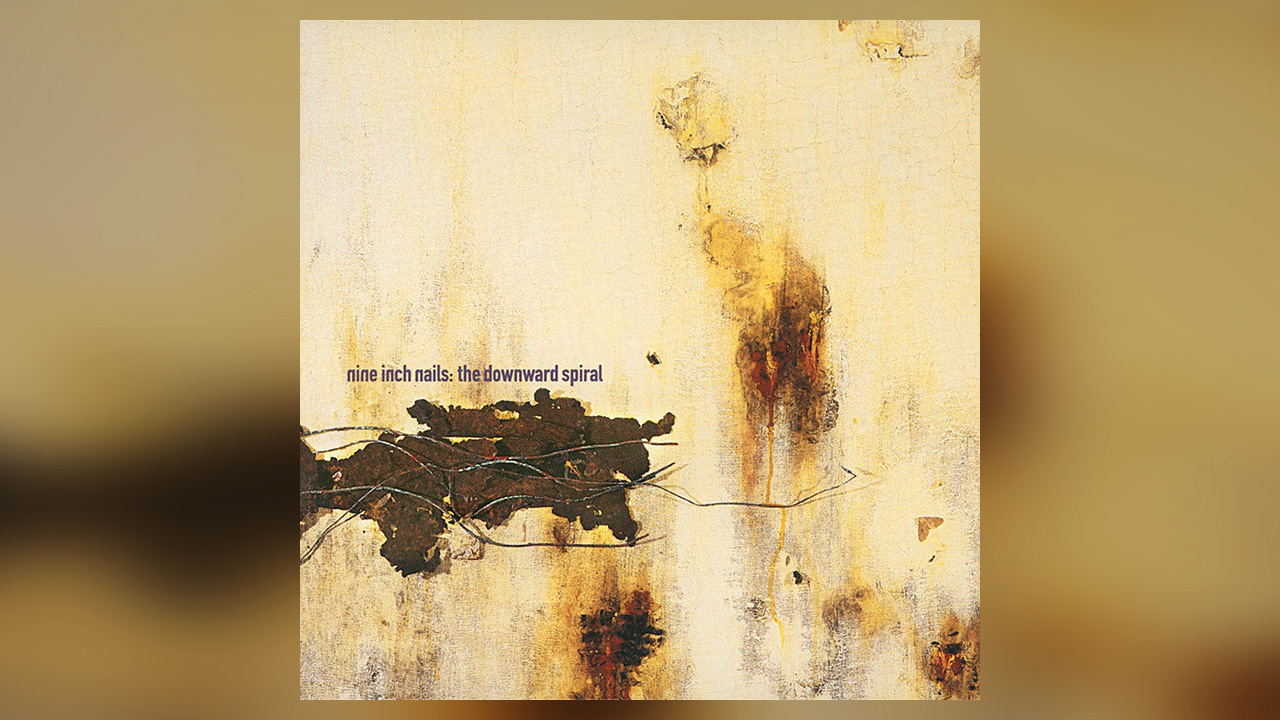In a genre defined by stern, machine-driven inflexibility, Trent Reznor was already known as an industrial music revolutionary with his 1989 debut Pretty Hate Machine. Ministry were harder, but his Nine Inch Nails project resonated with a different kind of heaviness, defined both by creative depth and emotional weight. Full-length 1994 follow-up The Downward Spiral, however, was where Reznor’s expansive vision came to stunning fruition.
Updating Pink Floyd’s The Wall for disaffected, mid-90s youth, The Downward Spiral was an alt-prog concept record that detailed the destruction of its central character over 14 harrowing tracks. Its execution bore a recognisable Floydian grandeur but it was scored by a far harsher set of sounds – pounding rhythms, twisted metallic carnage and lyrical anguish.
After the success of Pretty Hate Machine, labels swarmed to sign up anyone with a sampler attempting anti-social Depeche Mode and Skinny Puppy karaoke; but Reznor showed himself to be devastatingly ahead of the competition. From the primal, clattering opener Mr Self Destruct, to the creepily mellow Piggy or the punkish clamour of March Of The Pigs, he had crafted a convention- shredding offensive that offered exciting new definitions on rock, dance, metal and indie in one nihilistic, free-thinking swoop.
His ability to think outside the circuit board infused the album with an organic, progressive sound; fusing flesh and blood drumming (courtesy of Jane’s Addiction’s Stephen Perkins) with brutal sequencers and ravaged six-string distortion on I Do No Want This; fashioning a grating, multi-sectioned horrorscape for Reptile’s perverse mantra.
In more amateur hands, Closer would have faltered as clinical dancefloor fodder, but here it was a poisoned slab of electrofilth magnificence – you still couldn’t pigeonhole any of it but a gleaming pop accessibility earned the record two million sales and the interest of Johnny Cash, who reclaimed damaged finale Hurt as his own nearly 10 years later.
Reznor continues to indulge his progressive sympathies; 1999’s The Fragile delivered electronically-informed rock experimentation while 2007’s Year Zero had a ‘living’ album art concept in the form of a mysterious promo campaign, the mere discussion of which contributed to the artwork. And that was before you even got near any music.
This article was first published in Prog in 2012.
